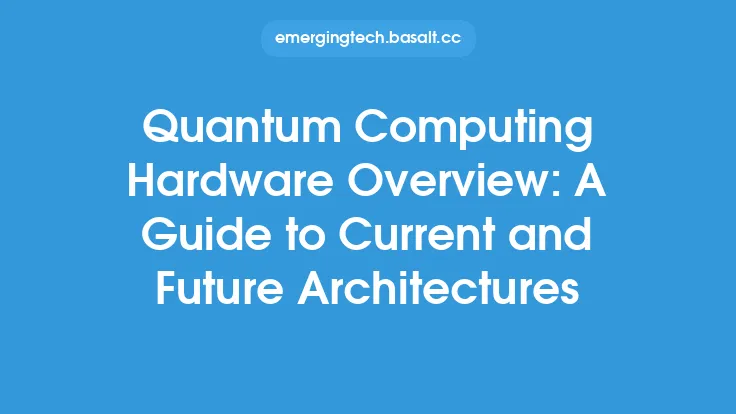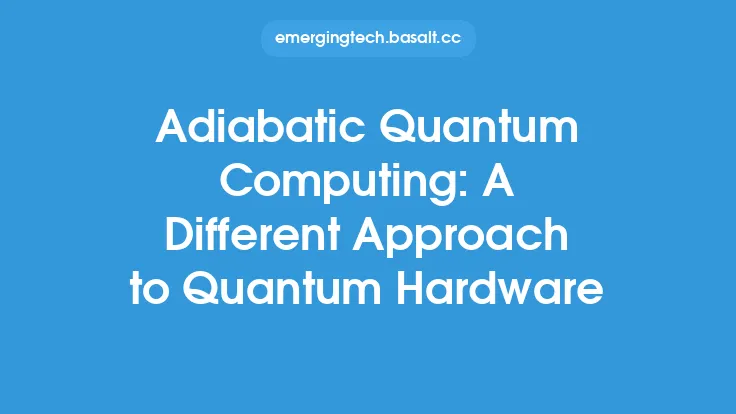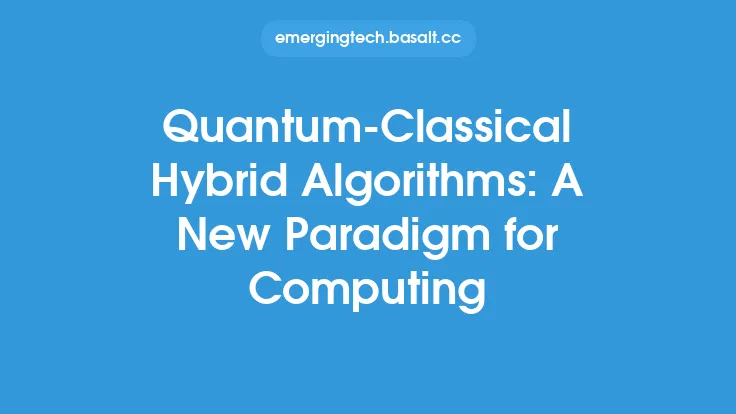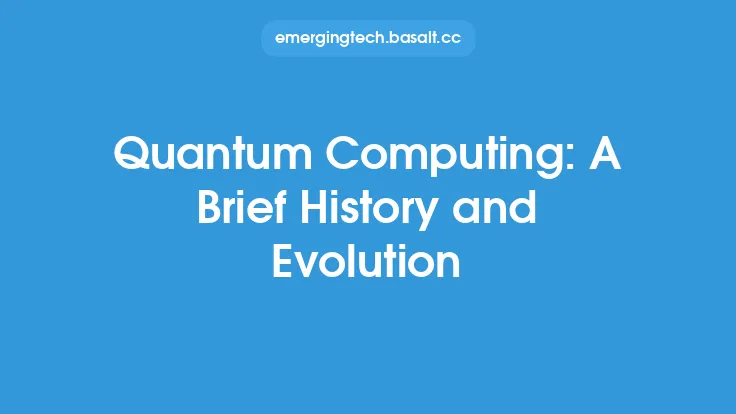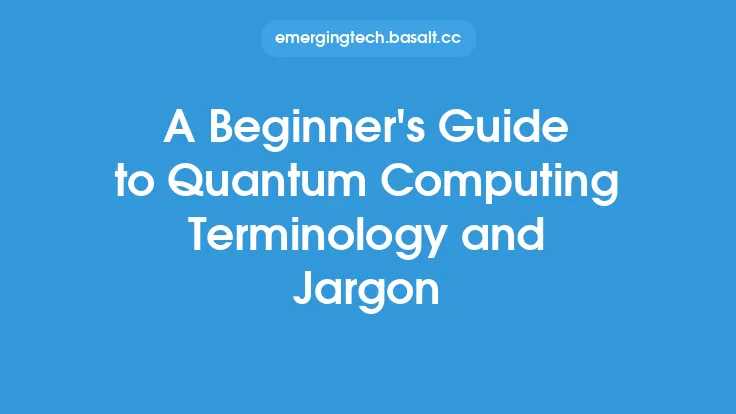The pursuit of quantum computing has led to the exploration of various approaches to quantum hardware, with topological quantum computing emerging as a promising alternative to traditional quantum computing architectures. This approach leverages the principles of topology to create a more robust and fault-tolerant quantum computing platform. In this article, we will delve into the fundamentals of topological quantum computing, its underlying principles, and the potential benefits it offers for quantum hardware.
Introduction to Topological Quantum Computing
Topological quantum computing is based on the concept of topological phases of matter, which are characterized by their topological invariants. These invariants are properties of the system that remain unchanged under continuous deformations, making them inherently robust against local perturbations. In the context of quantum computing, topological phases can be used to create a fault-tolerant quantum computing platform, where the quantum information is encoded in a non-local manner, making it less susceptible to decoherence and errors.
Topological Phases and Anyons
The foundation of topological quantum computing lies in the concept of topological phases and anyons. Anyons are exotic quasiparticles that arise in topological systems and exhibit non-Abelian statistics, meaning that the exchange of two anyons results in a non-trivial phase factor. This property makes anyons ideal for quantum computing, as they can be used to encode and manipulate quantum information in a robust and fault-tolerant manner. The anyons can be thought of as the fundamental building blocks of topological quantum computing, and their properties and behavior are crucial for understanding the underlying principles of this approach.
Topological Quantum Gates and Computation
Topological quantum computing relies on the concept of topological quantum gates, which are the quantum equivalent of logic gates in classical computing. These gates are used to manipulate the anyons and perform quantum computations. The topological quantum gates are designed to be fault-tolerant, meaning that they can correct errors that occur during the computation. This is achieved through the use of topological codes, which encode the quantum information in a non-local manner, making it less susceptible to decoherence and errors. The topological quantum gates can be combined to perform complex quantum computations, and their properties and behavior are crucial for understanding the potential benefits of topological quantum computing.
Advantages of Topological Quantum Computing
Topological quantum computing offers several advantages over traditional quantum computing architectures. One of the primary benefits is its inherent fault tolerance, which makes it less susceptible to decoherence and errors. This is achieved through the use of topological codes and anyons, which encode the quantum information in a non-local manner. Additionally, topological quantum computing has the potential to be more scalable than traditional quantum computing architectures, as it does not require the precise control of quantum states that is necessary for traditional quantum computing. This makes it an attractive option for large-scale quantum computing applications.
Challenges and Limitations
While topological quantum computing offers several advantages, it also faces several challenges and limitations. One of the primary challenges is the creation of a topological quantum computer, which requires the development of new materials and technologies. Additionally, the control and manipulation of anyons are still in the early stages of research, and much more needs to be learned about their properties and behavior. Furthermore, the development of topological quantum algorithms and software is still in its infancy, and much more research is needed to fully realize the potential of topological quantum computing.
Current Research and Developments
Despite the challenges and limitations, research in topological quantum computing is ongoing, and several breakthroughs have been made in recent years. The development of new materials and technologies, such as topological insulators and superconducting circuits, has enabled the creation of topological quantum systems. Additionally, the discovery of anyons in certain materials has provided a new platform for the study of topological quantum computing. Theoretical research has also made significant progress, with the development of new topological quantum algorithms and models. These advancements have brought topological quantum computing closer to reality, and it is likely that we will see significant progress in the coming years.
Conclusion
Topological quantum computing is a promising approach to quantum hardware that leverages the principles of topology to create a more robust and fault-tolerant quantum computing platform. The use of anyons and topological codes makes it less susceptible to decoherence and errors, and its potential scalability makes it an attractive option for large-scale quantum computing applications. While challenges and limitations remain, ongoing research and developments are bringing topological quantum computing closer to reality. As our understanding of topological quantum computing continues to grow, it is likely that we will see significant advancements in the field, and topological quantum computing may become a key player in the development of quantum hardware and architecture.
